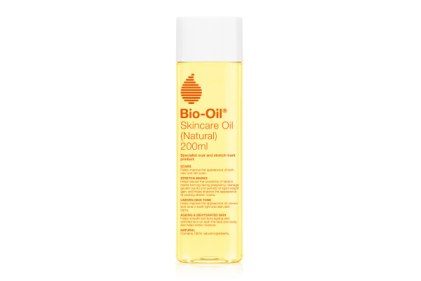
Omega-3 is essentially a nutrition star that both you and your kids need in your bodies for many, many reasons (some of which we'll tell you about below), but what exactly is it? Omega-3s are fatty acids that help feed the brain and keep it healthy, and are essential for growing kids to improve their cognitive (learning skills) and behavioural functioning. And for adults, it can help ward off more serious conditions as they get into middle and older age.
Eating foods chock full of omega-3 from the get-go is recommended for children, but it's never too late to add more of it to their meals. Adults are also advised to keep it in their diets.
Omega-3: The basics
First, the science bit! There are three types of omega-3 fats, which are: eicosapentaenoic acid (EPA), docosahexaenoic acid (DHA) and alpha-linolenic acid (ALA).
EPA and DHA are found mainly in certain oily fish (mackerel, tuna), as well as in beef and chicken and ALA is found primarily in plant-based foods and oils (flaxseeds oil, hempseed oil, soy, canola oil, and walnuts), but also in some fish and meat.
EPA and DHA (also known as polyunsaturated fatty acids) are two fats essential for normal growth and metabolism in our kids. A lack of these fats in the body can result in a poor immune system, skin health, and other issues, so, in short, they need to be in your little ones' diets - as well as your own - as early as possible.

Here are nine ways Omega-3 keeps both adults and kids' mind and body feeling good:
1. Omega-3s support a child’s cognitive development. According to a study, children who were fed foods rich in Omega-3s showed better hand-eye coordination, social skills and attention span.
2. Omega-3 fatty acids are essential for better vision or eye function in adults and children.
3. More research revealed that omega-3 in the blood increased a child’s ability to learn and behave better. They were better at reading and had fewer memory related problems.
4. Studies revealed that children with high levels of omega-3 fatty acids in their blood showed better concentration.
5. Reports suggest that ADHD children usually have low levels of omega-3 fatty acids. Children with ADHD, who incorporated more omega-3 into their diets, have shown moderate improvement in symptoms including problems in processing emotions and socialising.
6. Omega-3 is also linked with memory functioning, as the fatty acids are most concentrated in the brain region, so something adults and kids benefit from, regardless of age.
7. Omega-3s can help fight off some auto-immune diseases and may be especially important during early life. Studies have shown that getting enough omega-3s during your first year of life is linked to a reduced risk of many autoimmune diseases, including type 1 diabetes, autoimmune diabetes in adults and multiple sclerosis.
8. Omega-3s may improve bone and joint health. Studies have indicated that Omega-3s can improve bone strength by increasing the amount of calcium in bones, which, in turn, should lead to a reduced risk of osteoporosis in adult life.
9. Studies have found that people who eat fatty fish twice a week have lower rates of heart disease. Not only do they help prevent problems in healthy people, they also can reportadly cut the risk of complications and death in people who already have heart disease.

To ensure both you and your child gets the right amount of Omega-3 as they grow, you could include the below foods that contain omega-3 fats into your daily diet:
- Fish, including salmon, tuna, mackerel, halibut, herring, trout
- Shrimp
- Oysters
- Flaxseeds
- Walnuts
- Chia seeds
- Soybeans
- Beef







